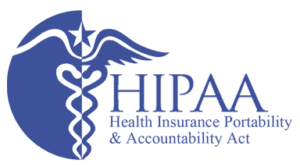HIPAA compliance is a necessary, yet challenging, process that many organizations in the healthcare and healthcare insurance industry must undertake. To comply with HIPAA, it is essential for organizations subject to the regulations to understand what HIPAA is and what is covered by its rules. A consequence of the Health Insurance Portability and Accountability Act of 1996 (HIPAA) was the development of national standards to prevent unauthorized uses and disclosures of sensitive patient health information. HIPAA also provided regulations that gave patients more rights to access, correct, and transfer health information, as well as the ability to know who has access to their information. HIPAA compliance is mandatory for most organizations that transmit health care or payment information electronically. These organizations are known as Covered Entities (CEs) and include most health plans, health care clearinghouses and healthcare providers. Additionally, HIPAA standards apply to pharmacies and third-party organizations with whom Protected Health Information (PHI) is shared for the provision of a service. These third-party organizations are known as Business Associates (BAs). Potential HIPAA BAs include vendors of E-prescribing software, third party disposal services, and Managed Service Providers. For HIPAA compliance, all BAs must sign a contract which clarifies what PHI is … Continue reading HIPAA Compliance
